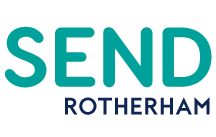Practical support for identifying and meeting need
Cognition and learning
Supporting individual learning needs
Top 10 tips for supporting learning across the curriculum and age range
Click on the numbers below:
Transitions
Children and young people engage in many transition points throughout the day (e.g. between learning activities, into breaktime and between teachers) and, for some, these can be difficult. In addition, there are further significant transition points throughout an individual’s education.
Further information is available on the websites below:
There are many strategies that can help to support transition:
- Share strategies agreed with pupil and parent/carers.
- Meet with parents/carers to establish a good relationship.
- Create pen portraits which outlines key facts and strategies, completed with the pupil.
- Employ visual supports, e.g. photo books, maps, timetables.
- Facilitate enhanced visits both formal and informal.
- Enable staff to meet with key individuals who know the child or young person, read their information and have time to observe and meet them.
- Share resources.
- Complete an audit plan > for pupil with medical and physical needs.
- Use transition toolkits for pupils (autism >, visual impairments > or hearing impairments >).
- Review transition programme and any other individual arrangements agreed.
- Engage in relevant training for staff in place before transition with consideration to any specific communication needs. See Other Ways of Speaking >
Specialist – additional support for children and young people with an ongoing and significant identified need
Learning environment
- Provide and explicitly teach and support the use of resources which will develop independent learning skills, e.g. reading pens.
- More specialised use of ICT to support learning, e.g. Widget >.
- Additional pastoral support in place to focus on personal curriculum targets.
- Flexibility within the timetable to allow for interventions to be implemented without impacting on access to the wider curriculum.
- Homework is bespoke with practical resources provided when appropriate.
- Regular ‘check ins’ with specific positive praise using the language of success.
Access to the curriculum
- Highly individualised learning programme developed by the SENDCo with support from external practitioners as required. This will assist with assessment, monitoring, planning and provision.
- Daily teaching of a programme of skills/concepts in fixed timetable periods that is monitored, and planned, by subject/class teacher and links to the work that is completed in class.
- Individualised curriculum closely tailored to long and short term outcomes. This should include pre-subject based learning and functional life skills training where appropriate.
- Assessment using a ‘small steps’ measure that demonstrates progress. It is planned carefully to give them every opportunity to demonstrate what they know and can do, using alternative means where necessary.
- Attendance is closely monitored with effective planning in place to support any absence issues.
- All staff are familiar with learning need and individualised targets so that interventions support their class based work.
- Very close home-school liaison, to develop close collaboration with families that improve outcomes and to be aware of changes in home circumstances or other external factors that impact upon a young person.
- Regular review meetings > and consider an Individual Education Plan/One Page Profile >. See also person centred reviews >

